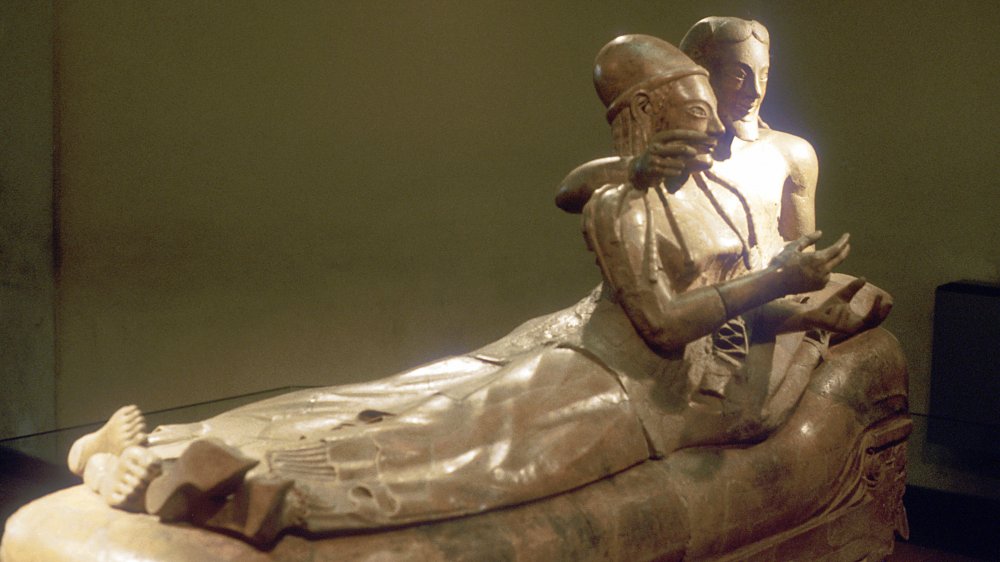The Mystery Of The Etruscans
One of the most advanced civilizations outside of Greece is also one of the most mysterious. The Etruscans lived in Italy, in what is now Tuscany, but researchers are only now starting to piece their history together.
According to the Encyclopedia Britannica, the origin of the Etruscans is still hotly debated. Herodotus believe they descended from the people who invaded Etruria from Anatolia before 800 BCE. Dionysius of Halicarnassus said they came from local Italians. The Ancient History Encyclopedia wrote by the 7th Century, Etruscan cities were flourishing and had set up trading posts. They had contact with the Greeks, which had an influence on Etruscan culture. They were considered more powerful than the Romans.
The Etruscans had a strong navy to defend their precious trading ports. They teamed up with the Carthaginians in the Battle of Alalia. The Etruscans also worked to expand their territory. The Encyclopedia Britannica explains that the Etruscans extended their reach to the northeast, toward what is now the Emilia region of Italy, and even extended into what is now Parma. It was this need for expansion that also attracted many enemies. The Etruscans suffered a defeat at the Battle of Cumae and were also attacked by Syracuse. These contributed to the decline of Etruscan cities and trade.
They didn't leave much behind
But by the 4th century, Rome began exerting its power and, as Italy Magazine reports, overshadowed the Etruscans. Despite being an advanced civilization, the Etruscans left behind no temples or structures, so it was easy for other people to claim historical dominance. Romans even burned down Etruscan libraries, so today's linguists have difficulty piecing together their language.
For so long, there was scant evidence of the Etruscan's might. The Ancient History Encyclopedia noted it took almost 2,500 years before archaeologists discovered intact Etruscan tombs with wall paintings depicting their lives — finally, some evidence they could work with. Researchers found that the Etruscans actually had a much more significant impact on history and society. The Romans adopted some aspects of Etruscan religion and rituals, including a religious practice used to establish cities. The Romans also borrowed Etruscan architecture. The Tuscan column is probably Etruscan in nature, and Roman temples were raised on steps, as the Etruscans did. Even the famous Roman toga, the one that's white with a red border, came from the Etruscans.
The Etruscans gave so much to history, but because their civilization didn't leave behind much, they remain a mystery. Until, of course, the next big archaeological discovery.

